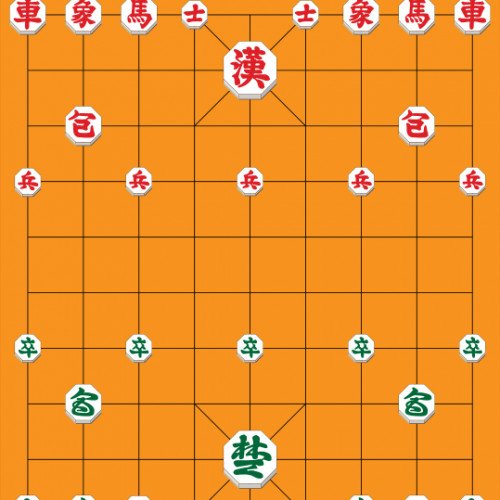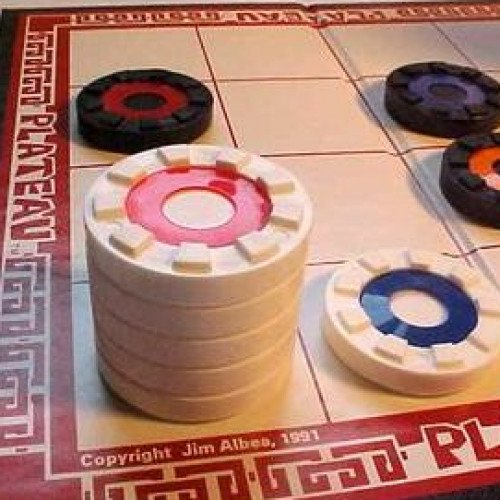JANGGI VS PLATEAU

JANGGI
Janggi (including romanizations changgi and jangki), sometimes called Korean chess, is a strategy board game popular in Korea. The game was derived from xiangqi (Chinese chess) of China and is very similar to it, including the starting position of the pieces, and the 9×10 gameboard, but without the xiangqi "river" dividing the board horizontally in the middle. Janggi is played on a board nine lines wide by ten lines long. The game is sometimes fast paced due to the jumping cannons and the long-range elephants, but professional games most often last over 150 moves and so are typically slower than those of Western chess. In 2009, the first world janggi tournament was held in Harbin, Heilongjiang China. The board is composed of 90 intersections of 9 vertical files and 10 horizontal rows. The board has nearly the same layout as that used in xiangqi, except the janggi board has no "river" in the central row. The pieces consist of disks marked with identifying characters and are placed on the line intersections (as in xiangqi and Go in China). Janggi pieces are traditionally octagonal in shape, and differ in size according to their rank. The sides are Blue (or sometimes Green), which moves first, versus Red. Each side has a palace that is 3 lines by 3 lines (9 positions) in the centre of their side of the board against the back edge. The palace contains four diagonal lines extending outwards from the centre, forming an "X" shape.
Statistics for this Xoptio

PLATEAU
Plateau is a two-player abstract strategy board game invented by Jim Albea. The game was developed over a two-year period culminating in its present form on May 12, 1986. The original name for the game was Pinnacle, but it was discovered that an older board/card game had that name, so around 1989 the name was changed to Plateau. From the 1980s through the 1990s Plateau was played at Science Fiction conventions mostly in the Southeastern United States. From the 1990s to the present, the game is played live at an online game site and via email. In 1997 a computer implementation of the game was created which facilitates email play and has a computer robot. Onboarding is adding one new piece to the play. This new piece can be placed anywhere that doesn't directly harm an opposing piece. For instance, you can onboard to any blank square or on top of any of your own pieces. The majority of Plateau moves are onboards. Instead of Onboarding or Moving, a player can choose to spend his turn exchanging prisoners. Prisoners are exchanged using the point values of the pieces. A simple value-for-value system is used. Since the pieces range in value from 1 point (for the mute) to 21 points (for the Ace) there are usually several combinations and options available for the players. The player initiating the exchange selects the pieces he wishes to exchange. These pieces will all add up to some point value. The responding player then has four options depending on the point values of the prisoners that he holds.